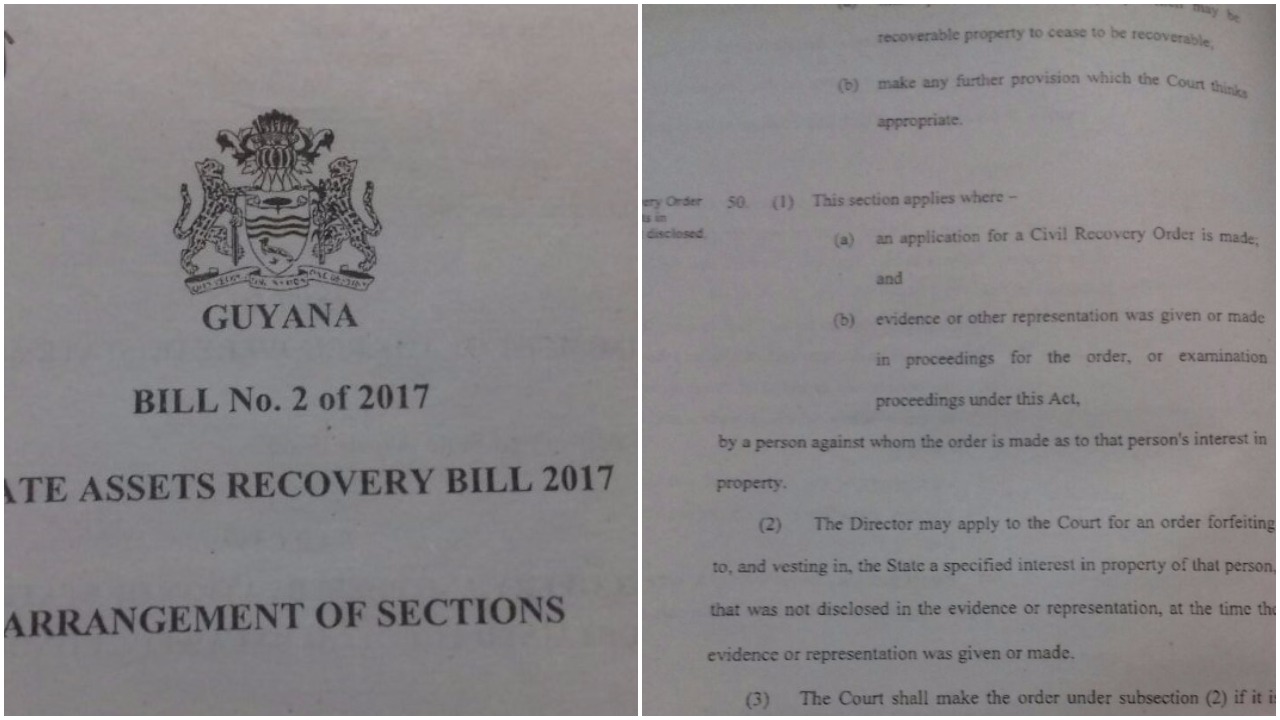Harassment, political victimization and impeding of business are some of the major concerns being raised by the opposition, People’s Progressive Party/Civic (PPP/C) and the Private Sector Commission (PSC) in relation to the State Assets Recovery Agency (SARA) legislation which was tabled last month in the National Assembly.
The Opposition Leader has raised concerns over the “repeated lies” being perpetuated in the media relating to the “bleeding” of the economy under the People’s Progressive Party/Civic (PPP/C) administration.
According to a press statement emanating from the Office of the Opposition Leader since the tabling of the State Asset Recovery Bill on January 30, 2017, the administrative State Assets Recovery Unit (SARU) in the Ministry of the Presidency has been silent in defending the many criticisms made of the bill in the media.
However, it was pointed out that “coincidentally on February 16, 2016, the day of the opening of the CARICOM Heads of Government Conference in Guyana, today’s media ran stories emanating from the SARU in defense of the bill.
As a result of the SARU’s statement, one headline screamed “SARU says the country was bleeding $313B per annum”, another shouted that “$306 B per year stolen under the PPP” whilst the third exclaimed that “Guyana was losing $300B annually through corruption under the PPP.”
The statement noted that in an economy of $600B, these repeated lies perpetuated by the 82- year- old Clive Thomas, Head of SARU, are laughable. “According to Thomas’s figures, half of the economy was lost annually to corruption. If $300B were lost annually due to corruption then the APNU/AFC government should have saved $600B (USD $3B) in the almost 2 years in office. Could Clive Thomas advise if this is so?”
It was reminded that Guyana, under the PPP/C government achieved eight consecutive years of positive economic growth, one of only two countries in Latin America and the Caribbean.
According to the Opposition Leader, the SARU was created explicitly to target and intimidate PPP leaders and members, and, as practice has shown members of the business community; its objective is vindictive and its practices violate the Guyana Constitution. The State Assets Recovery Bill before the National Assembly intends to enshrine these violations.
The Parliamentary opposition continues to reiterate its demand that an international firm be hired to track down state assets held abroad by current and former government officials, as well as those managing public entities. “The APNU/AFC government and its SARU “henchmen” remain silent on this matter. If there was a genuine desire to go after misappropriated assets, as is being alleged, then why has the government not acted?”
According to the press release, SARU’s “baseless unsubstantiated allegations once again expose the APNU/AFC Coalition Government’s intention of witch-hunting political opponents, destroying reputations and intimidating members of the business community.”
Meanwhile, the Private Sector Commission (PSC) and its affiliates hosted a meeting with a wide cross-section of members of the business community on Monday, February 13, 2017, to discuss issues which are having a serious impact on the survival and growth of businesses in a declining economy.
The PSC said among the discussion items were the State Asset Recovery Agency (SARA) Bill, Parking Meter Contract, the Rule of Law, and the State of the Economy.
While the consensus of businesses is that there is a need for unlawfully appropriated assets of the State to be recovered, it was felt that the SARA Bill provides too much unchecked power to the Agency.
According to PSC, the Director of SARA supersedes the Courts, the Commissioner of Police and the Commissioner General of GRA. “The Bill will impede business progress as it allows for harassment and political victimization of legitimate businesses. The Bill allows staff of the Agency to arbitrarily look at private accounts and financial information of citizens without due process. This Bill should be recalled and amended to be consistent with the constitutional rights of citizens.”












